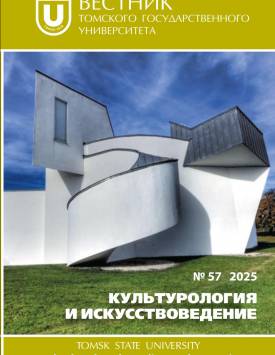The phenomenon of excessive tourism in the paradigm of cultural ecology
The main purpose of the work is to consider the phenomenon of excessive tourism in the paradigm of cultural ecology. The methodology of the sociocultural approach is used for the analysis in the article. The phenomenon of cultural ecology / cultural ecology is considered in the context of its conceptual evolution in the Russian and Western scientific traditions. The paradigm of cultural ecology is considered as a way to study the changing relations between society and the environment in the post-industrial world. It is proved that the ecology of culture appears as the preservation of the latter not only through conservation of nature, but also through overcoming excessive tourism. It is indicated that modern trends in the management of cultural heritage are aimed at the co-evolution of culture and nature, which eliminates their traditional opposition. The need to integrate environmental and social factors in the preservation of cultural heritage is illustrated by examples of the negative impact of tourism on key tourist locations. It is shown that modern culture, as a social phenomenon, is evolving towards optimizing interaction with the natural environment, and classical culture is gradually losing the dominant artificial origin in it. It is also emphasized that the status of modern culture in the context of cultural ecology corresponds to the trends in the development of the information society with an emphasis on “green” technologies. The hypothesis is put forward that it is the matrix ecology of culture that allows us to show that excessive tourism forms alternatives that reveal themselves not only through nature conservation, but also through the gradual reconfiguration of mass consciousness from technocratic to biological priorities. Accordingly, the embeddedness of excessive tourism in the logic of an overconsumption society may be replaced by a vector of dominance of a healthy lifestyle within the framework of sustainable development with biological dominance in the world picture. This will mean a restructuring of the established traditional “format of impressions” underlying the current excess tourism. The authors declare no conflicts of interests.
Keywords
cultural ecology/ecology of culture, cultural heritage, excessive tourism, trends, information societyAuthors
| Name | Organization | |
| Vodopyanova Elena V. | Institute of Europe of the Russian Academy of Sciences | veritas-41@yandex.ru |
| Korobeynikova Larisa A. | Tomsk State University | kla-15@yandex.ru |
References

The phenomenon of excessive tourism in the paradigm of cultural ecology | Tomsk State University Journal of Cultural Studies and Art History. 2025. № 57. DOI: 10.17223/22220836/57/2
